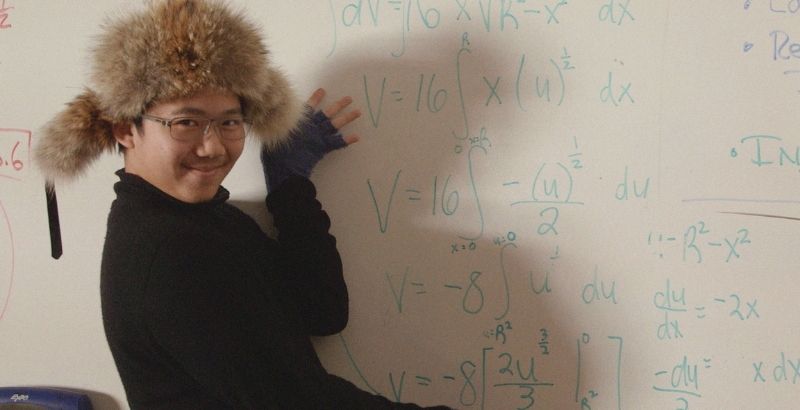
Debbie Lum’s Try Harder! is a non-fiction treasure that follows a group of students from Lowell — San Francisco’s top-ranked high school — as they prepare to enter the college of their dreams. Lum takes a premise that might sound unappetizing and turns it into an endearing, fun, and honest understanding of student pressures and an observation of how racism embedded in American educational culture creates barriers to the aspirations of BIPOC students.
We’ve all heard of Harvard or Yale, but Try Harder! truly shows the importance of the name of a university in American culture. And this is the basis for the concerns of the young people we follow in this film. One failed test or an unsatisfactory grade can be the difference between rejection and acceptance, which in addition to diminishing the dreams of each student, can also lead to family disappointment. This aspect is illustrated mainly thanks to Alvan, a charismatic kid who runs through the halls like Naruto and whose mother is a constant intrusion in his life and decision-making. Entering a prestigious school is very important for immigrant families, and that idea becomes a psychological splinter in Alvan’s life. If he makes it into Ivy League, his desired college, he would have the opportunity to pursue his goals, avoid family disappointment, and as a bonus, live away from his controlling mother. You’ll be rooting for this lovable kid.
Lum’s direction is exceptional. Besides showing us the pressure on the shoulders of these students, she makes sure to capture all their joy. Watching Try Harder! you would think that the director knew many of these young people beforehand because the degree of access and honesty that she gets from them is astonishing. This virtue nourishes the film with personality and empathy; It makes you love its subjects and cheer for them to get into the college of their dreams.
This empathy is also stemmed from the students’ demonstration of emotion. Although they are always talking about exams, academic obstacles, and the necessary grades to reach their goals, there is also the aforementioned concern of family disappointment, the psychological burden of having a father unable to support them, or the affection toward a teacher recently diagnosed with cancer.
The film emphasizes the educational culture at Lowell, a competitive place, mostly populated by Asian American students, that can help you get to the college of your choice as long as you are fully dedicated. Lum relates this notion organically to the racial factor. An important figure is Rachel, a biracial young woman, who is constantly pressured by her Black mother to obtain the best grades possible in order to have the best future in a country that gives fewer opportunities to its BIPOC population.
This is complemented by the microaggressions that Rachel receives at the hands of her classmates in relation to her race and academic performance. In addition to this topic, the explanations about the admission processes reveal that Asian students are automatically labeled as robots of some sort by large universities (Stanford in particular), which causes a high degree of rejection. Apparently, they are looking for “other types of students.” The film makes it clear that the system is designed to make BIPOC students work twice as hard, or more.
Try Harder! is a wonderful and smart film filled with dreams, nice characters, and understanding that uses a light and playful touch to explore difficult themes, empathize with the pressures of youth, and display the absurdity of America’s elitist education system. A documentary that graduates with top honors.
“Try Harder!” is screening In-Person and virtually at DOC NYC 2021 as part of its Coming of Age program. It will open on December 3rd in New York, Los Angeles, and San Francisco.
Try Harder!
-
Rating - 9/109/10
TL;DR
Try Harder! is a wonderful and smart film filled with dreams, nice characters, and understanding that uses a light and playful touch to explore difficult themes, empathize with the pressures of youth, and display the absurdity of America’s elitist education system. A documentary that graduates with top honors.






